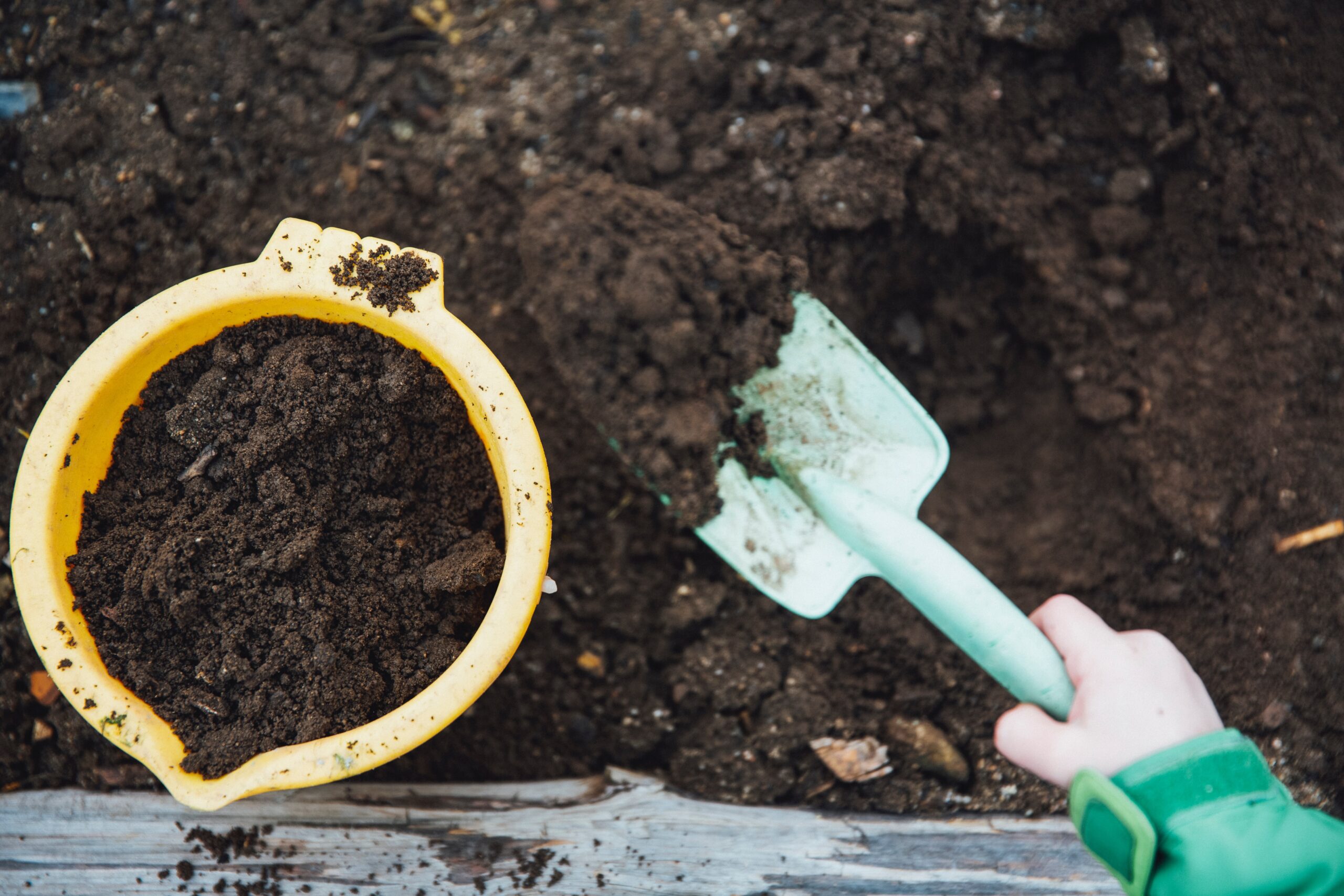Our guts are similar to the garden compost; they’re both full of healthy bacteria which break down organic material into nutritionally rich material used to help our gardens, or bodies flourish. If you understand the analogy, it’s easy to accept that the gut is like a human compost and why it’s important to care for your gut as well as you would care for a thriving compost in the garden.
Composting is the biological process of breaking up organic waste such as food waste, leaves and grass trimmings. With regular turning to aerate to the organic matter, it’s broken down into a nutritious humus that can be used to enrich the soil. Not everything can be added to the compost; Diseased plants, or those infested by pests, and weeds should be avoided as they can spoil the contents of your compost and alter the balance of bacteria it contains. It’s also important not to dump too much into it at one time or forget to oxygenate. Some people add meat waste to well-sealed composts but others are wary for fear that it cause the compost to smells and/or attracts rodents. For more information on composting
In the human body, gut bacteria break food down into macro and micronutrients used to perform a variety of functions in the body. How well it functions largely depends on what and how much goes into it, the amount and type of bacteria we hold in the gut and how well it can be broken down.
When I first started The Food Coach, nutritional science focused mainly on specific conditions, and dietary cures. Inflammation for example could be reduced by eating foods rich in Omega 3 fats, high blood sugar by low GI carbohydrates and hypertension by cutting down on salt. Gut health could be improved by taking probiotics, yoghurt and sauerkraut and was only really necessary if you have a specific gut condition.
These days scientists are growing increasingly interested in the role of gut bacteria and how it effects a wide range of conditions. Although the microbiome is a relatively new field of study, scientists have studied the role of gut bacteria in conditions as varied as obesity, Parkinson’s disease, depression, and hypertension.
While scientists continue to publish their research, I’m not going to wait for further evidence to say that I believe gut health is the root cause of most conditions and, like a compost, it all starts with what you put in it.
Michael Pollan in his book In Defence of Food made fame in 2009 with the line Eat food mostly from plants and not too much of it.
He wasn’t saying anything I hadn’t said since I started The Food Coach in 2001 only, he was better at it and played to a larger US audience. I tended towards “Eat food, real food, mostly from plants.
If you can accept the analogy that our gut is similar to a compost, you can also accept that we should only put real food, not too much of it and mostly plants into it. Upset the balance of what goes in, and you upset the balance of bacteria. Get sick as a result and medication further tips the balance of bacteria. It’s why we must all strive to prevent ill health rather than wait to get sick and find a cure. .
My advice therefore is to think of the digestive system as a compost system:
- Only eat natural produce
- Top it up regularly but not too much at one time
- Aerate it regularly – in other words breathe!
Only add natural produce
In the same way that certain substances are considered better than others to compost, there are some foods that are much better for your gut function than others. Like a compost food that don’t belong to nature may affect than natural ecosystem that lives in your gut. Highly processed wheat and sugar filled products are better avoided in favour of a wide range of fresh natural vegetables and fruit, fish, chicken, nuts and seeds and fermented foods such as sourdough bread, yoghurt, kefir, and sauerkraut.
Top it up regularly but not too much at one sitting
Like a compost it’s much better to eat smaller meals every 3 or 4 hours rather than eat nothing for hours and bombard the gut with huge piles of food at one sitting. A small meal is easily and completely digested which means that you can go through the day without digestive discomfort which invariably happens with a famine /feast approach to eating.
Aerate it regularly
When people are stressed, their breath becomes shallow, and they don’t draw air all the way down to the belly. Like compost which needs aeration to keep the microorganisms alive, you need to draw air right down into your belly to feed the organisms and help digest your food. But don’t wait until you eat to breathe deeply and smoothly, make a regular practise of breathing correctly to help manage stress and digestion throughout the day.





Recent Comments